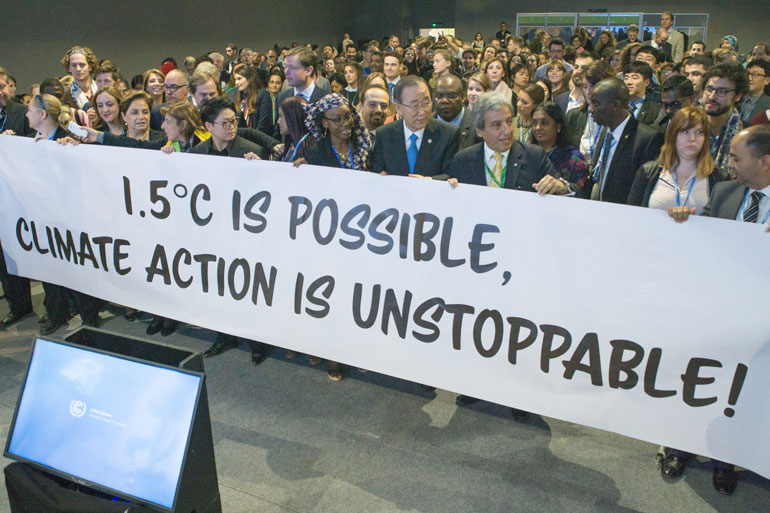Marrakesh Marks New Era in Climate Implementation
David Wei and Samantha Harris
During the first week of COP22 in Marrakesh, the US election sent shockwaves through the international community. But by the end of the second week, countries and non-state actors – including cities, regions and businesses – had reaffirmed their commitment to tackling climate change through the Paris Agreement.
Throughout COP22, the We Mean Business coalition called for increased focus on implementation to realize the ambition of the Paris Agreement. With 111 countries having now ratified the agreement, accounting for 77% of global emissions, the conference set about achieving the task of implementing emissions reductions, building climate resilience and securing low carbon finance.
The Marrakech Action Proclamation for Our Climate and Sustainable Development, a political statement issued by 2016 COP Presidency Morocco, marked a post-Paris shift towards “a new era of implementation and action on climate,” and called on non-state actors to join countries to take immediate and ambitious climate action.
COP22 similarly welcomed the Marrakech Partnership for Global Climate Action, through which the UNFCCC accelerates global climate action by convening stakeholders, showcasing initiatives, and tracking progress. The Marrakech Partnership, constructed with input from non-state actors including We Mean Business, made important changes which increase the chance of success. These include:
-
Meetings convened under the UNFCCC’s Technical Examination Processes (TEPs) for the year ahead will focus on priorities selected after each COP, and build coherently towards a high-level event at the subsequent COP. These meetings will be “significantly more narrow in their focus to address highly specific policy options,” and will more likely result in the spread of policy solutions.
-
The Marrakech Partnership will also connect with regional and thematic meetings outside of UNFCCC sessions. This recognizes that global climate action will be accelerated throughout the year and in meetings alongside other sectoral forums, such as the Clean Energy Ministerial.
-
The NAZCA Portal becomes the official platform for tracking climate action by non-state actors, and will continue to be updated to report on collective progress and impact.
By accelerating global climate action, the Marrakech Partnership will fuel improvements to the next set of national climate plans under the Paris Agreement. It chimes well with the multilateral outcomes at COP22, which set COP24 in 2018 as an important political moment to begin the process of updating countries’ national climate plans and targets.
-
The decisions made by the COP and by the CMA (the governing body of the Paris Agreement) set 2018 as a clear deadline for the completion of technical rules under the agreement, including rules on how countries account for emissions reductions, report on their progress, and transfer carbon credits to each other. Completing this work will enable countries to update their national climate plans with certainty about the rules of the game.
-
At COP24 countries will hold a dialogue on progress to net zero global emissions, which is intended to kick off the update to their national climate plans. Next year, the current Presidency Morocco, and the next Presidency Fiji, will consult with countries and begin to prepare this important dialogue.
The key outcomes from COP22 reflect the need to implement the Paris Agreement on the ground and in the real economy, to genuinely realize its ambition. As a coalition working with thousands of the world’s largest businesses and investors, We Mean Business is a willing and essential partner in building a low carbon and climate resilient economy.

